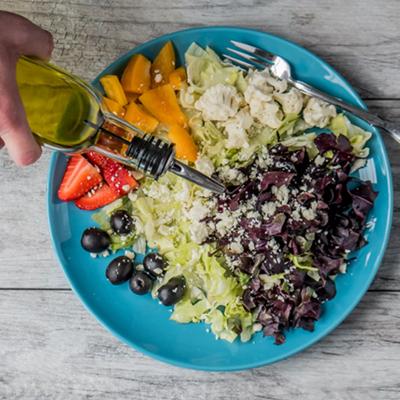The sugar thieves
Do you know any sugar thieves? Those well-meaning people who steal your real sugar and replace it with stevia, saccharin or other substitutes? I think about one holiday celebration a few years ago. There was a table filled with pies, cakes and bars straight out of Willy Wonka's dream. The smell alone made my mouth water. Next to that table was a smaller one with sugar-free apple pie and gummy bears, just for me. While it was extremely thoughtful and considerate of my diabetes, well, YUCK! I choked down a few forkfuls and watched the others enjoy their desserts....
Read MoreThe Right Cure For What Ails You
Summer promises plenty of fun, but can also have bad surprises in store that may ruin the day. As the saying goes, an ounce of prevention is worth a pound of cure, but we’ve also got some tips for you if the damage is already done. Sunburn. Avoid it by using sunscreen and taking shelter in the shade when UV rays are at their strongest. If you’ve got a nasty burn, take a lukewarm bath or apply a wet towel to the affected area. Aloe gel is also a good option to reduce discomfort. Athlete’s foot. Sweat and lack of ventilation are...
Read MoreInsulin? But I have type 2!
With type 2 diabetes, many people think, "take a pill, watch your diet and all will be well". Right? Then, out of the blue, your doctor mentions insulin. Insulin is secreted from a healthy-functioning pancreas in response to food or stress—whenever your body needs to get glucose into your cells. In doing so, it helps keep a healthy level of glucose in your blood. Without a doubt, insulin is the most natural, easiest way to keep your blood sugar in an optimal range. Diabetes is a progressive disease. Over time, your pancreas will make more mistakes, even when you...
Read MoreFinding Fats in Foods
If someone wanted to cut non-essential fat from their diet, you might suggest they try eating soup and a sandwich for lunch, eating more salads and choosing desserts that are low in saturated fat. Sounds like a good plan, right? Unfortunately, it’s not quite that simple. The fact is, saturated fats and trans fats are lurking in many foods that seem healthy. Here are a few examples: Salad dressing. All those crisp, delicious vegetables are great for you—high in vitamins, minerals and fiber. But at 20 grams of fat per tablespoon,...
Read MoreEverything you need to know about HbA1c
Hemoglobin A1c, HbA1c, A1c… You have probably heard these letters and numbers before. However, what do they actually mean? What is an HbA1c test? What is a “normal” HbA1c level? What can you do to lower your HbA1c? These are great questions. Well, we’ve put together everything you need to know about HbA1c here. What is the HbA1c test? Hemoglobin is the part of your blood that carries oxygen. It’s what gives your blood its red color. When glucose is processed by your body and enters your bloodstream, a small amount of it...
Read MoreTo your health! Enjoying a drink with diabetes
Any time you get together with friends or family, especially during the holidays, you may feel inclined to raise a glass. Why not? Living with diabetes does not mean you can't enjoy a cocktail or some champagne. Just know how alcohol can affect your blood sugar numbers or interact with insulin or medications before you start pouring, so you can avoid any surprises. Nobody wants a holiday low Drinking alcohol can affect you in a few ways: When your liver is processing alcohol, it does not produce sugar to regulate your blood...
Read MoreKeeping blood sugar in range
Why is staying in range for blood sugar important? Have you ever noticed the safety guardrails when you drive? Why are they there? You have some freedom to drive as you wish. But if you or I travel outside the guardrails, we are in dangerous territory. Knowing the range keeps us traveling safely. It is kind of like that with your blood sugar ranges. Knowing your blood sugar ranges helps keep you out of bad situations and on the road healthy and happy. Your doctor can help you know what your normal ranges (or guardrails) should be. For more information about that, see...
Read MoreDiabetes support whenever you need it
Discover Accu-Chek engage™, the only program of its kind designed to offer simple diabetes support to help you manage your diabetes at your own pace. We understand that diabetes management comes with many twists and turns. It can be challenging to stay motivated and maintain a healthy lifestyle. This is why we developed engage. The engage program is exclusive and free to Accu-Chek Guide users. Developed in consultation with Dr. Michael Vallis, a professor in psychology, the program will simplify the management of your diabetes by...
Read MoreKnow Your Numbers and Learn the ABC of Diabetes
Knowing your numbers is an important part of managing diabetes and understanding your diabetes symptoms. While your daily blood sugar may come to mind first, there are other numbers, to familiarize yourself with. Keeping track of these important health numbers can help to lower your risk of serious complications. These numbers are: HbA1c (A1C) Blood pressure Cholesterol Here’s a helpful breakdown of what numbers matter most, what your numbers should be, and what they mean as part of your treatment plan. Daily Blood Sugar...
Read MorePages
The Right Cure For What Ails You
Summer promises plenty of fun, but can also have bad surprises in store that may ruin the day. As the saying goes, an ounce of prevention is worth a pound of cure, but we’ve also got some tips for you if the damage is already done. Sunburn. Avoid it by using sunscreen and taking shelter in the shade when UV rays are at their strongest. If you’ve got a nasty burn, take a lukewarm bath or apply a wet towel to the affected area. Aloe gel is also a good option to reduce discomfort. Athlete’s foot. Sweat and lack of ventilation are...
Read MoreInsulin? But I have type 2!
With type 2 diabetes, many people think, "take a pill, watch your diet and all will be well". Right? Then, out of the blue, your doctor mentions insulin. Insulin is secreted from a healthy-functioning pancreas in response to food or stress—whenever your body needs to get glucose into your cells. In doing so, it helps keep a healthy level of glucose in your blood. Without a doubt, insulin is the most natural, easiest way to keep your blood sugar in an optimal range. Diabetes is a progressive disease. Over time, your pancreas will make more mistakes, even when you...
Read MoreFinding Fats in Foods
If someone wanted to cut non-essential fat from their diet, you might suggest they try eating soup and a sandwich for lunch, eating more salads and choosing desserts that are low in saturated fat. Sounds like a good plan, right? Unfortunately, it’s not quite that simple. The fact is, saturated fats and trans fats are lurking in many foods that seem healthy. Here are a few examples: Salad dressing. All those crisp, delicious vegetables are great for you—high in vitamins, minerals and fiber. But at 20 grams of fat per tablespoon,...
Read MoreEverything you need to know about HbA1c
Hemoglobin A1c, HbA1c, A1c… You have probably heard these letters and numbers before. However, what do they actually mean? What is an HbA1c test? What is a “normal” HbA1c level? What can you do to lower your HbA1c? These are great questions. Well, we’ve put together everything you need to know about HbA1c here. What is the HbA1c test? Hemoglobin is the part of your blood that carries oxygen. It’s what gives your blood its red color. When glucose is processed by your body and enters your bloodstream, a small amount of it...
Read MoreTo your health! Enjoying a drink with diabetes
Any time you get together with friends or family, especially during the holidays, you may feel inclined to raise a glass. Why not? Living with diabetes does not mean you can't enjoy a cocktail or some champagne. Just know how alcohol can affect your blood sugar numbers or interact with insulin or medications before you start pouring, so you can avoid any surprises. Nobody wants a holiday low Drinking alcohol can affect you in a few ways: When your liver is processing alcohol, it does not produce sugar to regulate your blood...
Read MoreKeeping blood sugar in range
Why is staying in range for blood sugar important? Have you ever noticed the safety guardrails when you drive? Why are they there? You have some freedom to drive as you wish. But if you or I travel outside the guardrails, we are in dangerous territory. Knowing the range keeps us traveling safely. It is kind of like that with your blood sugar ranges. Knowing your blood sugar ranges helps keep you out of bad situations and on the road healthy and happy. Your doctor can help you know what your normal ranges (or guardrails) should be. For more information about that, see...
Read MoreDiabetes support whenever you need it
Discover Accu-Chek engage™, the only program of its kind designed to offer simple diabetes support to help you manage your diabetes at your own pace. We understand that diabetes management comes with many twists and turns. It can be challenging to stay motivated and maintain a healthy lifestyle. This is why we developed engage. The engage program is exclusive and free to Accu-Chek Guide users. Developed in consultation with Dr. Michael Vallis, a professor in psychology, the program will simplify the management of your diabetes by...
Read MoreKnow Your Numbers and Learn the ABC of Diabetes
Knowing your numbers is an important part of managing diabetes and understanding your diabetes symptoms. While your daily blood sugar may come to mind first, there are other numbers, to familiarize yourself with. Keeping track of these important health numbers can help to lower your risk of serious complications. These numbers are: HbA1c (A1C) Blood pressure Cholesterol Here’s a helpful breakdown of what numbers matter most, what your numbers should be, and what they mean as part of your treatment plan. Daily Blood Sugar...
Read More








